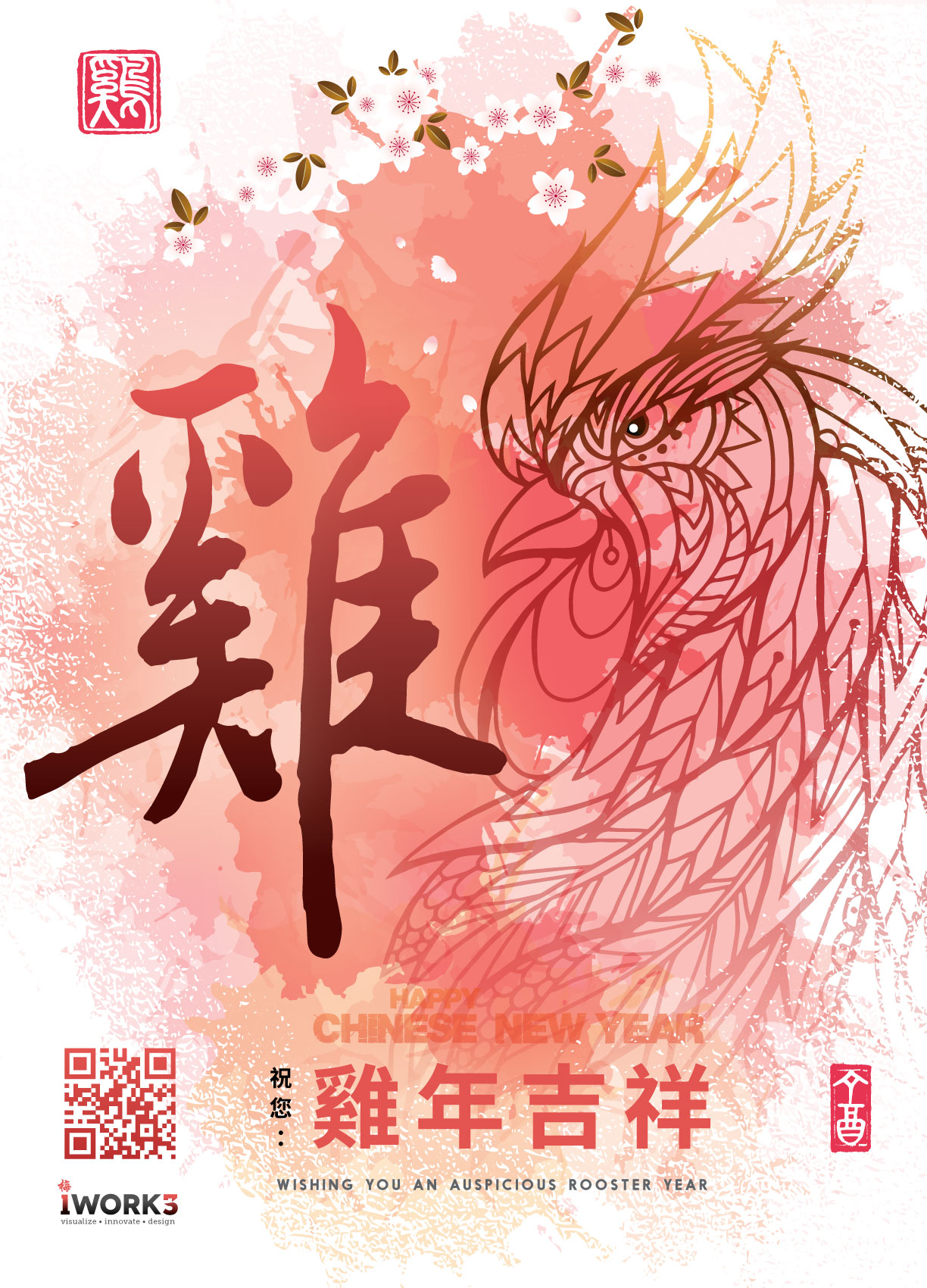
雞 [鸡] jī
noun
: fowl; chicken; rooster
: (slang) prostitute
Kun Reading
鶏 | とり tori OR にわとり niwatori
noun
: (domestic) chicken
: chicken (meat)
On Reading
ケイ kei
雞[鸡]蛋 ji1dan4: (chicken) egg; hen’s egg
[鶏卵 | けいらん keiran: hens egg]雞蛋果 [鸡蛋果] ji1 dan4 guo3: passion or egg fruit (Passiflora edulis)
[果物時計草 | くだものとけいそう kudamono tokeisou: passion fruit (Passiflora edulis); passionfruit]
雞[鸡]冠 ji1guan1: crest; cockscomb
[鶏冠 | とさか tosaka OR けいかん keikan: cockscomb; crest]
雞[鸡]丁 ji1ding1: diced chicken meat
宮保雞丁 [宫保鸡丁] gong1 bao3 ji1 ding1: Kung Pao Chicken; spicy diced chicken
雞[鸡]]肉 ji1rou4: chicken meat
[鶏肉 | けいにく keiniku OR とりにく toriniku: chicken meat]
雞塊 [鸡块] ji1kuai4: chicken nugget; chicken piece
炸雞[鸡] zha2ji1: fried chicken
[鶏唐揚 | とりからあげ tori karaage: deep-fried chicken: fried chicken]雞腿 [鸡腿] ji1tui3: chicken leg; drumstick
[鶏足 | けいそく keisoku: chicken leg]雞飯 ji1fan3: chicken rice
[鶏飯 | けいはん keihan: dish of seasoned chicken with rice, pickles, etc. (from Kagoshima and Okinawa)]
雞眼 [鸡眼] ji1yan3: corn (callus on the foot)
[鶏眼 | けいがん keigan: corn (on one’s foot)]
雞姦 [鸡奸] ji1jian1: bestiality; sodomy
[鶏姦 | けいかん keikan: homosexual sex between males; buggery; sodomy]
雞[鸡]奸 ji1jian1: sodomy; anal intercourse; buggery
做雞[鸡] zuo4ji1: (slang) (of a woman) to work as a prostitute
公雞[鸡] gong1ji1: cock; rooster
[牡鳥 OR 牡鶏 | おんどり ondori: cock; rooster; chanticleer]鐵公雞 [铁公鸡] tie3 gong1 ji1: cheapskate; stingy person
母雞[鸡] mu3ji1: hen
[牝鷄 | ひんけい hinkei: hen]火雞[鸡] huo3ji1: turkey
[七面鳥 | しちめんちょう shichimenchou: turkey]田雞[鸡] tian2ji1: frog; the Chinese edible frog (Hoplobatrachus rugulosus)
四眼田雞 [四眼田鸡] si4 yan3 tian2 ji1: four-eyes
勺雞[鸡] shaoji1: (bird species of China) koklass pheasant (Pucrasia macrolopha)
叫雞[鸡] jiao4ji1: rooster; cock; (slang) (Cantonese) to visit a prostitute
土雞[鸡] tu3ji1: free-range chicken
[地鶏 | じどり jidori OR じとり jitori: nationally protected chicken breed; free-range local traditional pedigree chicken; chicken meat from same] OR 草雞[鸡] cao3ji1: free-range chicken; (dialect) hen; cowardly
2017 Year of the Fire Rooster
Chinese New Year 2017, which lands on Saturday, January 28th this year, is the Year of the Red Fire Rooster. The Year of the Rooster is ruled by the fire element and it is a Yin year. This is the time to be spent in solitude and harmony with friends and family.
Roosters are the brightest sun sign, as they herald the dawn. It also embodies the hero: guardian and protector of life. Roosters are always on guard, unfortunately looked down on by the people. It is the embodiment of youth, strength, hope and purity. Roosters are known for their loyalty, commitment, hard work and family values. Rooster years are known to be filled with integrity and efficiency. Therefore, in everything, be industrious (hard work) to achieve success in life, career and financial investments.
People born in the Year of the Rooster, will succeed in any profession that requires self-confidence, audacity and talent. They possess the gift of persuasion, using intelligence and professionalism to persuade anyone. They like comfort and safety. The rooster’s life is never boring or ordinary.
Chinese astrology 2017 forecasts predict that this will be an excellent year for the Dragons. The Snake, Ox and Rooster will have a great year. The Rats and Tigers will have a good year. The Sheep, Pigs and Monkeys will have a mix of good and bad happenings while the Rabbits, Horses and Dogs might face a few problems.
source: sunsigns and abc-people
Japanese common word | expression | yojijukugo 四字熟語 | idiom
鶏冠に来る | とさかにくる tosaka ni kuru
: to get mad
鶏鳴狗盗 | けいめいくとう keimei kutou
: person who resorts to petty tricks; a person of small caliber who is only capable of petty tricks
鶏肌になる | とりはだになる tori wa ba ni naru
: to have goosebumps
鶏群一鶴 | けいぐんいっかく keigun ikkaku
: a swan among ducklings; a diamond among stones; a great figure among the common run of men
*鶏口牛後 | けいこうぎゅうご keikou gyuugo
: (yoji) better to be the beak of a rooster than the rump of a bull; better to be the leader of a small group than a subordinate in a large organization; better to be a big fish in a little pond than a little fish in a big pond
OR
*鶏口となるも牛後となる勿れ | けいこうとなるもぎゅうごとなるなかれ keikou tonaru mo gyuu goto naru nakare
: Better be the head of a cat than the tail of a lion
**割鶏牛刀 | かっけいぎゅうとう kakkei gyuutou
: using a meat ax when a knife would suffice; taking a sledgehammer to crack a nut; using a grand-scale measure (a massive instrument) to deal with an insignificant problem. Overkill.
Chinese expression | chengyu 成語 | idiom
雞同鴨講 [鸡同鸭讲] ji1 tong2 ya1 jiang3
: lit. chicken speaking with duck; fig. talking without communicating; people not understanding each other
雞毛蒜皮 [鸡毛蒜皮] ji1 mao2 suan4 pi2
: chicken feather, garlic skin; trivial matter; kitchen trash
雞犬不寧 [鸡犬不宁] ji1 quan3 bu4 ning2
: lit. not even the chickens and dogs are left undisturbed; fig. great commotion; pandemonium
雞犬升天 [鸡犬升天] ji1 quan3 sheng1 tian1
OR
一人得道,雞犬升天 [一人得道,鸡犬升天] yi1 ren2 de2 dao4 , ji1 quan3 sheng1 tian1
: lit. when a man achieves the Dao, his poultry and dogs rise to Heaven; fig. to ride on sb else’s success. Once one man gets a government position, all his cronies get in too. Once sb has cracked the problem, every Tom, Dick and Harry can do it
雞皮疙瘩 [鸡皮疙瘩] ji1 pi2 ge1 da5
: goose pimples; goose bumps
雞鳴狗盜 [鸡鸣狗盗] ji1 ming2 gou3 dao4
: crowing like a cock and stealing like a dog; bag of tricks; useful talents
偷雞摸狗 [偷鸡摸狗] tou1 ji1 mo1 gou3
: to imitate the dog and steal chicken; to dally with women; to have affairs
呆若木雞 [呆若木鸡] dai1 ruo4 mu4 ji1
: lit. dumb as a wooden chicken; fig. dumbstruck
問客殺雞 [问客杀鸡] wen4 ke4 sha1 ji1
: lit. asking guests whether or not to butcher a chicken for them; fig. hypocritical show of affection (or hospitality)
殺雞取卵 [杀鸡取卵] sha1 ji1 qu3 luan3
: lit. to kill the chicken to get the eggs; fig. to kill the goose that lays the golden eggs
殺雞宰鵝 [杀鸡宰鹅] sha1 ji1 zai3 e2
: kill the chickens and butcher the geese
殺雞嚇猴 [杀鸡吓猴] sha1 ji1 xia4 hou2
: lit. killing the chicken to scare the monkey; to punish an individual as an example to others; pour encourager les autres
OR
殺雞給猴看 [杀鸡给猴看] sha1 ji1 gei3 hou2 kan4
: lit. to kill a chicken in front of a monkey; fig. to make an example of sb (by punishment) to frighten others
指雞罵狗 [指鸡骂狗] zhi3 ji1 ma4 gou3
: lit. to point at the chicken while scolding the dog; fig. to make indirect criticisms
斗酒隻雞 [斗酒只鸡] dou3 jiu3 zhi1 ji1
: lit. a chicken and a bottle of wine; fig. ready to make an offering to the deceased, or to entertain guests
扯雞巴蛋 [扯鸡巴蛋] che3 ji1 ba5 dan4
: to talk shit; to drivel; bullshit
牝雞司晨 [牝鸡司晨] pin4 ji1 si1 chen2
: female chicken crows at daybreak; a woman usurps authority; women meddle in politics. The female wears the trousers.
雞蛋裡挑骨頭 [鸡蛋里挑骨头] ji1 dan4 li5 tiao1 gu3 tou5
: to look for bones in an egg; to find fault; to nitpick
**殺雞焉用牛刀 [杀鸡焉用牛刀] sha1 ji1 yan1 yong4 niu2 dao1
: don’t use a sledgehammer on a nut; aquila non capit muscam
偷雞不成蝕把米 [偷鸡不成蚀把米] tou1 ji1 bu4 cheng2 shi2 ba3 mi3
: lit. to try to steal a chicken only to end up losing the rice used to lure it; fig. to try to gain an advantage only to end up worse off; to go for wool and come back shorn
嫁雞隨雞,嫁狗隨狗 [嫁鸡随鸡,嫁狗随狗] jia4 ji1 sui2 ji1 , jia4 gou3 sui2 gou3
: if you marry a chicken follow the chicken, if you marry a dog follow the dog
*寧做雞頭,不做鳳尾 [宁做鸡头,不做凤尾] ning4 zuo4 ji1 tou2 , bu4 zuo4 feng4 wei3
: lit. would rather be a chicken’s head than a phoenix’s tail; fig. to prefer to be a big fish in a small pond rather than a small fish in a big pond
拿著雞毛當令箭 [拿着鸡毛当令箭] na2 zhe5 ji1 mao2 dang4 ling4 jian4
: to wave a chicken feather as a token of authority; to assume unwarranted authority on the basis of some pretext
鳥不拉屎,雞不生蛋 [鸟不拉屎,鸡不生蛋] niao3 bu4 la1 shi3 , ji1 bu4 sheng1 dan4
: lit. (a place where) birds don’t defecate and hens don’t lay eggs; fig. god-forsaken; remote and desolate
黃鼠狼給雞拜年 [黄鼠狼给鸡拜年] huang2 shu3 lang2 gei3 ji1 bai4 nian2
: Beware of suspicious folk bearing gifts, they are sure to be ill-intentioned
形声 Pictophonetic.
隹 (zhui1: short-tailed bird radical 172) suggests the meaning while
奚 (xi1: where? what? how? why?) provides the sound.
簡體 Simplified.
鸡. Created as unique simplification #104 (鷄 » 鸡).
Variant / semantic:
鷄 ji1
Japanese variant:
鶏 ji1
Examples:
詛咒像雞雛,必回棲息木。
zu3zhou4 xiang4 ji1chu2, bi4 hui2 qi1xi1 mu4
Curses, like chicken, come home to roost.


